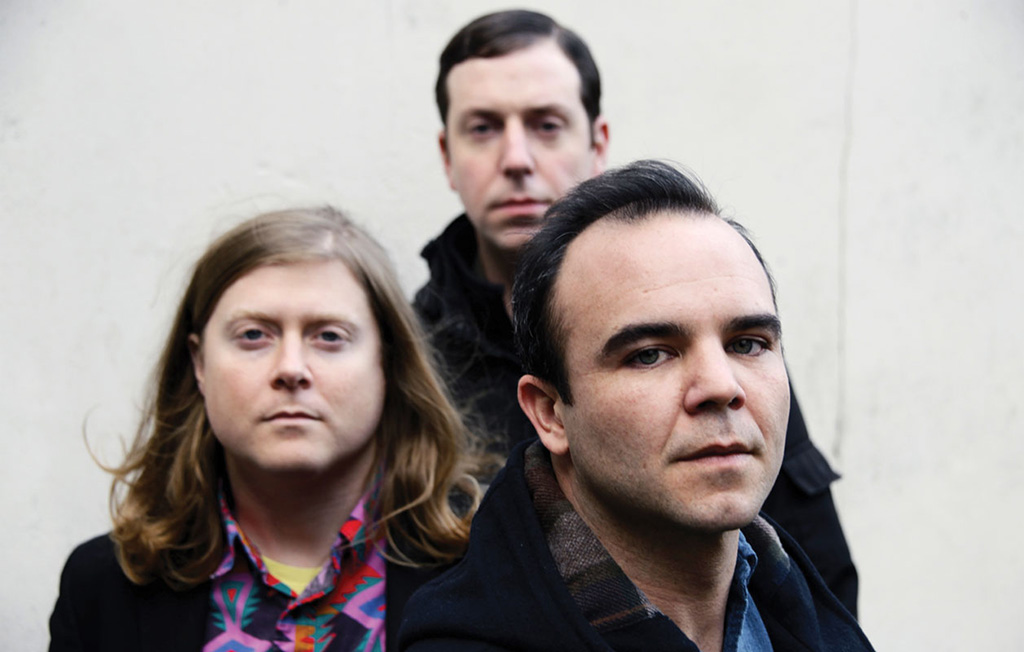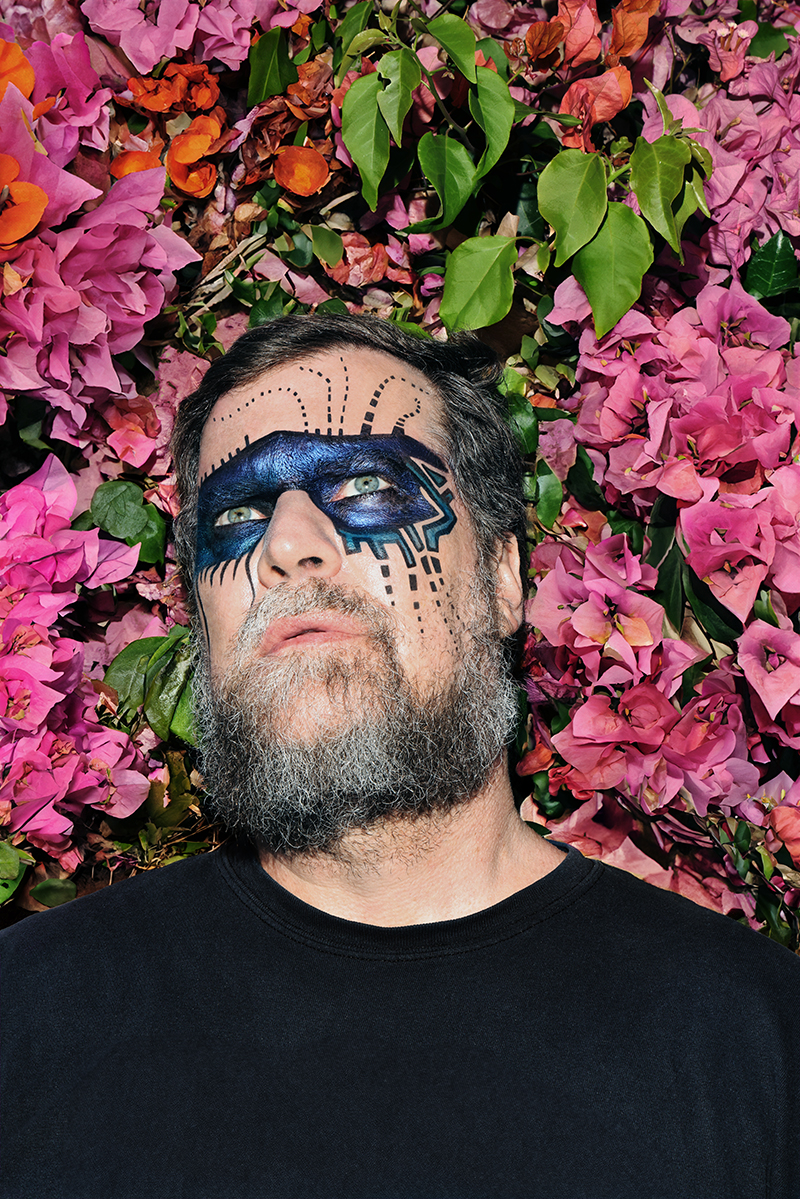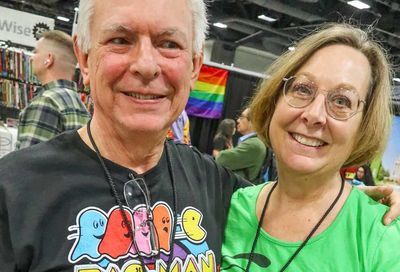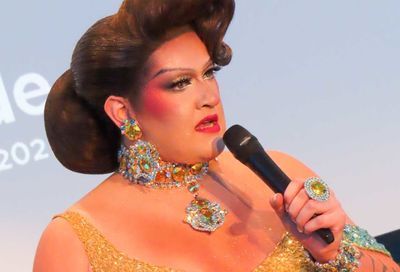Future Islands’ “The Far Field” (Review): Cohesive and mature, but a little lacking
Three years after late night fame, Future Islands makes a case for their staying power

Future Islands — Photo: Phil Knott
Let’s get one thing out of the way: Unless you happen to have spent a lot of time in Baltimore’s music scene, your first experience with Future Islands was probably when they performed “Seasons” on David Letterman in 2014. You know the one. An act that by all rights should have been routine and unremarkable quickly became anything but, as lead singer Sam Herring began beating his chest, punching the air and dropping to his knees, belting out the lyrics to “Seasons” and probably aging a couple of years in the process.
It’s hard to think of a band that made a bigger impression on a late night talk show. Where most might see their performance shared a few times after and receive a small boost to their profile, something about Herring’s bombastic performance resonated. His melodramatics ended up being shared widely, and the appearance transformed a previously obscure synth-pop group into a household name, almost overnight.
Anyone who cared to follow up on Future Islands after Letterman quickly discovered that there was more to them than their on-stage bombast. The performance was memorable, but the fact that we’re still talking about it three years later is down to more than virality. A relatively unknown band seemingly coming out of nowhere and blowing everyone away when they least expected it is, in a way, Future Islands in microcosm. Given the runaway success of their last album, Singles, it’s hardly surprising that they chose to follow a similar pattern on The Far Field (★★★½). Having come into the mainstream relatively late, it would be hard to blame them for doubling down on what finally brought them success.
What might be most striking about The Far Field is the dissonance between the energetic, infectious tone on the one hand, and the raw despondency in the lyrics on the other. Despite their genuinely contagious energy, Future Islands is not a band that deals in happy subject matter. There’s a powerful emotional punch to the lyrics, which deal with longing, heartbreak, and bitter hindsight. It’s not all a downer, but even the moments of joy are tinged with sentimentality, nostalgia and loss, as on “The Beauty of the Road” which reads as a sincere but futile attempt at optimism after a painful breakup. Though they make it look almost effortless, it’s a tricky balancing act that few of their peers could pull off.
Introspective despondency is of course an endless source of material for artists, and Future Islands are hardly the only electro-indie act around to mine their own existential angst for subject matter. But where others sigh and whisper their anxieties, Future Islands confronts those messy feelings and presents them in all their melodramatic glory. Herring’s vocals are what really make this work. His gruff, idiosyncratic voice invites comparisons with Isaac Brock of Modest Mouse, or perhaps a darker, grittier Brandon Flowers, but set amid his band’s warm, poignant arrangements, he is unlikely to be mistaken for anyone else. His voice is what gives Future Islands their sense of immediacy and rawness, as he shouts and bellows one minute and quavers over some tearful realization the next.
Although The Far Field is similar in tone and content to Singles, it is a more holistic work than its predecessor. Rather than the last album’s series of one-off vignettes, here the tracks flow together with an apparent unity of purpose. But in the service of a more cohesive work, they’ve lost some of the spontaneity that made Singles such a head-turner. It still comes out in flashes and glimmers, but halfway through The Far Field they have more or less finished and the rest of the album contains few surprises. In the one glaring exception, “Shadows,” Herring is joined by Debbie Harry, and the two play off each other surprisingly well, Harry more than holding her own alongside Herring’s otherwise overwhelming presence. This second-to-last track is enough to bring the album to a satisfying conclusion, but by the end, something is still lacking. While it is more cohesive, even more mature at points than Singles, it feels somehow more obviously deliberate and calculated — not exactly the qualities that they’re known for.
Future Islands have a lot going for them, with their ability to bring together the hazy warmth of synthpop with intimate acoustics and the sheer emotive power of Herring’s voice. At their best, they combine them with results that are incredibly cathartic, even devastating. There are enough moments of this on The Far Field to make it worth a listen. Despite some rocky moments, the maturity and sincerity on display here are hopeful signs that a band that made its name on a one-off viral video three years ago still has a lot to offer.
The Far Field is available for purchase on Amazon and iTunes and through streaming services such as Spotify.
Support Metro Weekly’s Journalism
These are challenging times for news organizations. And yet it’s crucial we stay active and provide vital resources and information to both our local readers and the world. So won’t you please take a moment and consider supporting Metro Weekly with a membership? For as little as $5 a month, you can help ensure Metro Weekly magazine and MetroWeekly.com remain free, viable resources as we provide the best, most diverse, culturally-resonant LGBTQ coverage in both the D.C. region and around the world. Memberships come with exclusive perks and discounts, your own personal digital delivery of each week’s magazine (and an archive), access to our Member's Lounge when it launches this fall, and exclusive members-only items like Metro Weekly Membership Mugs and Tote Bags! Check out all our membership levels here and please join us today!
























You must be logged in to post a comment.